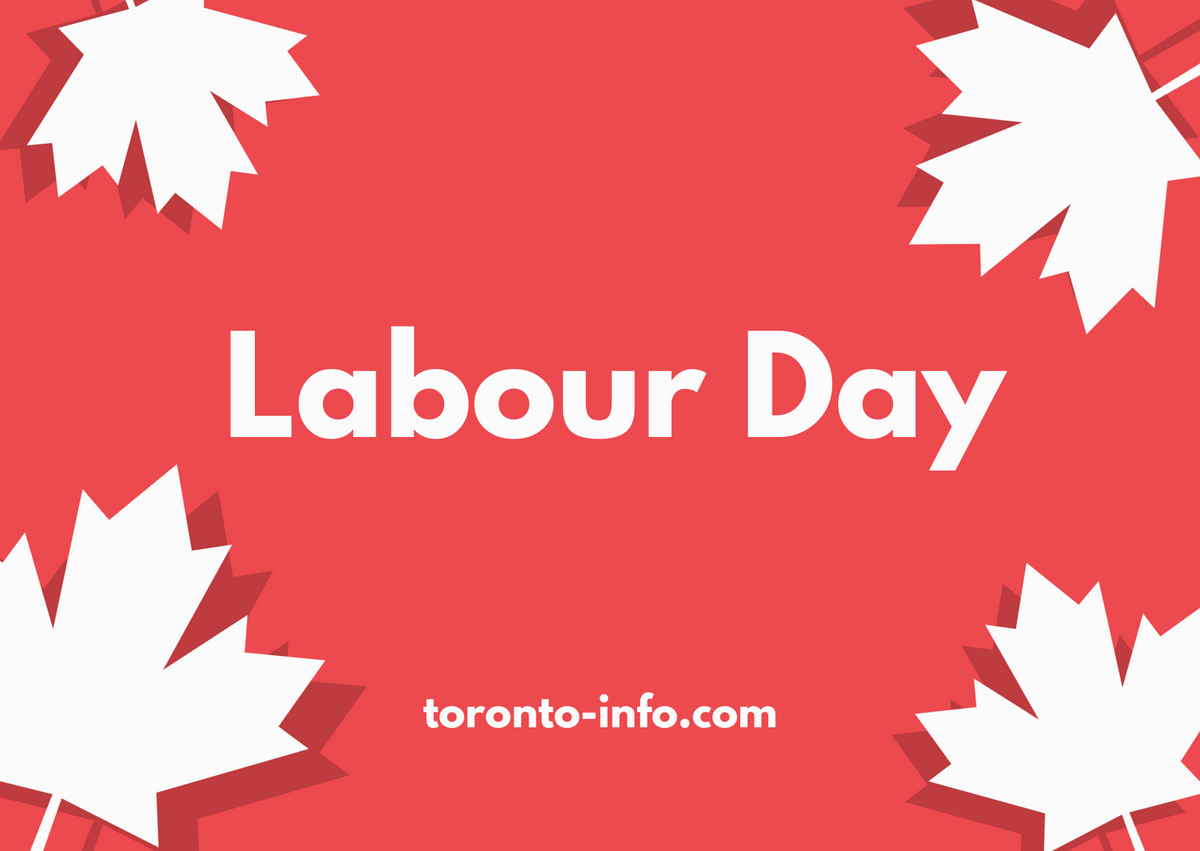Labour Day in Canada 2023
Sep 21, 2023 Toronto-Info 1802

Labour Day, observed on the first Monday of September in Canada, is a day dedicated to honoring the achievements and contributions of workers. It is a day when Canadians come together to celebrate the labor movement's successes and the importance of workers in shaping the nation's prosperity. In this article, we will delve into the significance of Labour Day in Canada, its history, how it is celebrated, and its relevance in the contemporary context.
When is Labour Day (Canada) 2023
In 2023 Canadian Labour Day is on Monday September 4.
Does Canada get Labor Day off?
Labour Day in Canada is celebrated on the first Monday of September and it is a federal statutory holiday.
Labour Day is a federal statutory holiday, so schools and most businesses are closed.
Traditionally, Labour Day was an occasion to campaign for and celebrate workers' rights during parades and picnics organized by trade unions. These still play a role in Labour Day for some Canadians, but many people see the first Monday in September as an opportunity to take a late summer trip, perhaps to their country cottage, or enjoy the company of family or friends at picnics, fairs, festivals and fireworks displays.
The Historical Origins of Labour Day
The Early Struggles of Workers
Labour Day in Canada has deep historical roots, dating back to the 19th century. During the Industrial Revolution, workers faced harsh working conditions, including long hours, low wages, and inadequate safety measures. These conditions led to labor unions and worker-led movements advocating for better treatment.
The First Labour Day Parade
The first recorded Labour Day parade took place in Toronto on April 15, 1872, when a group of 10,000 workers marched to demand shorter workdays (nine hours) and fair wages. This event marked the beginning of organized labor movements in Canada.
Official Recognition
In 1894, Labour Day was officially recognized as a national holiday in Canada, and it was designated to be observed on the first Monday in September. This recognition was a significant milestone for Canadian workers, granting them a day off to commemorate their contributions to the nation.
Labour Day Traditions
Parades and Festivals
One of the most iconic aspects of Labour Day celebrations in Canada is the colorful parades and festivals that take place across the country. These parades feature labor unions, community groups, and workers from various industries, showcasing their pride and solidarity.
Picnics and Barbecues
Many Canadians take advantage of the long weekend to host picnics and barbecues with family and friends. It's a time for relaxation and enjoyment, as people soak in the last days of summer.
Union Marches
Labour unions often organize marches and demonstrations to highlight ongoing labor issues and advocate for workers' rights. These events serve as a reminder of the importance of collective bargaining and standing up for workers' interests.
Labour Day Today: A Modern Perspective
Reflection on Workers' Rights
Labour Day is not just a day off work; it is a day to reflect on the progress made in workers' rights. It serves as a reminder that workers' rights are hard-fought gains that should not be taken for granted.
Economic Impact
Labour Day also has a significant economic impact, as it stimulates consumer spending. Many businesses offer special promotions and sales, attracting shoppers and boosting the economy.
A Day of Gratitude
In recent years, Labour Day has taken on a new meaning. It's a day for Canadians to express gratitude for the essential workers who have played a crucial role during challenging times, such as healthcare workers, first responders, and frontline workers.
FAQs
- Why is Labour Day celebrated on the first Monday of September? Labour Day is observed on the first Monday of September to provide a long weekend for Canadians to enjoy the end of summer while honoring workers.
- Are there any specific customs associated with Labour Day celebrations? Picnics, barbecues, parades, and union marches are some of the customs associated with Labour Day celebrations in Canada.
- What is the significance of the first Labour Day parade in Toronto in 1872? The first Labour Day parade marked the beginning of organized labor movements in Canada and played a pivotal role in advocating for workers' rights.
- How do Canadians typically celebrate Labour Day today? Canadians celebrate Labour Day by attending parades, enjoying picnics, reflecting on workers' rights, and participating in various festivities.
- What is the economic impact of Labour Day in Canada? Labour Day stimulates consumer spending, as many businesses offer special promotions and sales during the long weekend, which positively impacts the economy.